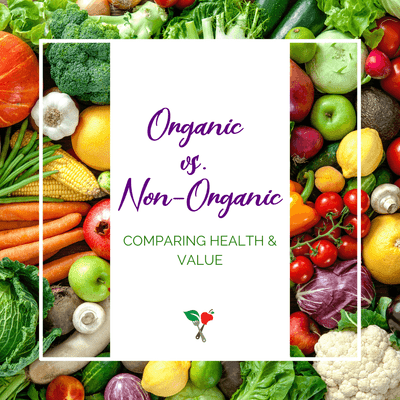Do You Need to Buy Organic?
Let us explore the real differences between organic and conventional foods in terms of health benefits and costs to make informed choices.
Understanding Organic: Definitions and Standards
Organic foods are grown and processed following specific guidelines which limit the use of synthetic pesticides, herbicides, and fertilizers. In the United States, the USDA National Organic Program is responsible for setting and enforcing these standards. The NOP certification ensures that the foods meet all organic standards from the farm to the grocery store shelves.
100% organic: The product must contain only organically produced ingredients (except water and salt).
Organic: The product must contain at least 95% organically produced ingredients, the other 5% are ingredients unavailable in organic form or from an approved list.
Made with organic ingredients: Processed foods may state this if they contain at least 70% organic ingredients.
Understanding these definitions and standards is helpful to demystify the labeling system and encourage well-informed decisions while food shopping. The certification process involves many steps which often contribute to the higher prices of organic foods to their non-organic counterparts.
Organic foods have the same safety and quality standards as foods that are grown conventionally. No matter how the food is grown, the government has safety thresholds that all food must meet. Natural fertilizers and pesticides are allowed on certified organic farms, however synthetic substances are prohibited. Organic foods do have fewer pesticide residues, however, both organic and non-organic foods are within the level set for safe consumption.
Price Analysis
When it comes to costs, organic foods typically are more expensive. This is due to the difference in labor, crop yields, and the stringent certification process. Prices can range from between 10-134% more than conventional products, with the mean cost for organic items around 68% higher.
Some organic products, such as dairy and meat, might have a higher cost than other organic foods. Other foods may have a very similar price point, so it is important to compare items to see what fits within your budget.

It is important to also consider that organic produce may be more perishable and smaller in size which may also impact the amount you buy and frequency of needing to purchase which should be considered to prevent food spoilage and waste.
Nutritional Content: Is There a Significant Difference?
The debate over nutritional content does not have a clear winner at this time. Some studies have found no significant nutritional differences between organic and non-organic foods. However, some research has found that organic items may have higher levels of antioxidants than conventionally grown products. The consensus currently is that the difference in nutritional content is not enough to impact overall health.
A number of studies have compared the macro- and micronutrient differences between organic and non-organic foods and have found they are remarkably similar in vitamin, mineral, and carbohydrate content.
Many factors can affect the nutritional content of foods, so it is important to be aware that it is not just whether it is organic or not. Freshness, storage conditions, and cooking methods can each lead to increases or decreases in different vitamins, antioxidants, and so on. While there may be some nutritional variances between conventional and organic items, they should not be the sole determinant in the decision to purchase organic foods.
Studies have also shown no significant difference in flavors between the two.
Making an Informed Choice: Is Organic Really Better?
The decision to buy organic foods is complex and personal. It is important to assess scientific evidence, personal health goals, financial constraints, and personal values when determining the importance of purchasing organic foods.

Time and time again, the research shows that consuming a diet rich in plant foods, regardless of if they are organic or not, is the key to maintaining good health and feeling great and also lowering the amount of added sugar, salt, and processed foods you eat, and also lowering your risk for many chronic diseases.
These suggestions will help you when deciding when grocery shopping:
- Focus on variety: This will help you get many different nutrients, antioxidants and improve your overall diet. Look for an array of assorted colors on your plate and with your choices, whether it is organic or not, will help improve the nutritional quality and diversity of your diet.
- Read labels carefully: Just because a food is organic does not mean it has healthy ingredients or is a healthier choice. It is still important to read the labels for calories, fat, sugar, and salt content.
- Shop In-Season: The freshest produce that is in season will have the best flavor, nutritional content, and be the most affordable.
- Properly Wash Produce: It’s important to wash your fresh any produce to remove dirt, bacteria, and residue.
- Focus on Foods you Eat the Most: If you want to switch to consuming more organic foods, begin by spending the extra money on foods you eat most frequently.
- Buy Organic Foods in Bulk: Buying bulk items of organic ingredients and making items from scratch can help you save a lot of money. For example, buying bulk organic oats and making your own oatmeal will be much cheaper and nutritious than buying prepackaged organic oatmeal.








 Weight Loss
Weight Loss Health & Wellness
Health & Wellness Diabetes
Diabetes Heart Health
Heart Health Motherhood & Family
Motherhood & Family Dietary Restriction
Dietary Restriction Other Health Conditions
Other Health Conditions About SSHE
About SSHE


